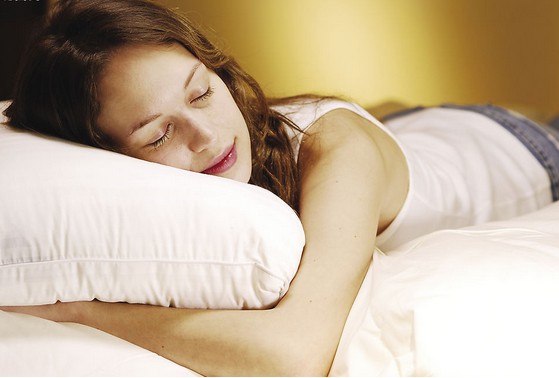(单词翻译:单击)
Humans are efficient sleepers, and that's why we need less sleep - seven hours - compared to as much as 14 hours a day for our closest animal relatives,
人类的睡眠很有效,这也是为什么我们睡得更少,一天只睡7个小时而不是离我们最近的物种所需的多达14个小时。
Researchers at Duke University compiled a database of sleep patterns of hundreds of mammals, including 21 primate species. They found that not only do humans need less sleep than chimps, macaques and lemurs, we spend a greater percentage of our slumber in the deeper, more restorative stages of sleep.
美国杜克大学的研究人员建立了一个几百种哺乳动物睡眠规律的数据库,其中包括21种灵长类动物。他们发现,人类睡眠时间不仅比黑猩猩、猕猴和狐猴要少,而且更多时间是沉睡在更深、更有恢复作用的阶段。

That might not seem surprising in this age of electric lights and round-the-clock activities, but co-author David Samson says this shift began long before we developed artificial lighting. He traces it back to when human ancestors left their nests in the trees for sleeping on the ground.
在这个有电灯和通宵工作的时代这也许并不令人惊讶。但是这份报告的共同作者大卫·萨姆森说,睡眠的这种变化早在我们发明人工照明之前就开始了。他将这一变化追溯到人类祖先离开树巢开始睡在地上的时候。
The need to sleep near fire and in larger groups for warmth and safety could have allowed these early humans to get the most out of their sleep in the shortest possible time. He notes that also left more time for other activities, like learning new skills.
由于睡觉时需要靠近火和更大的人群保持温暖和安全,这可能使得早期人类尽可能在最短时间内睡得最好。萨姆森提到这也留给人类更多的时间做其他活动,比如学习新技能。


